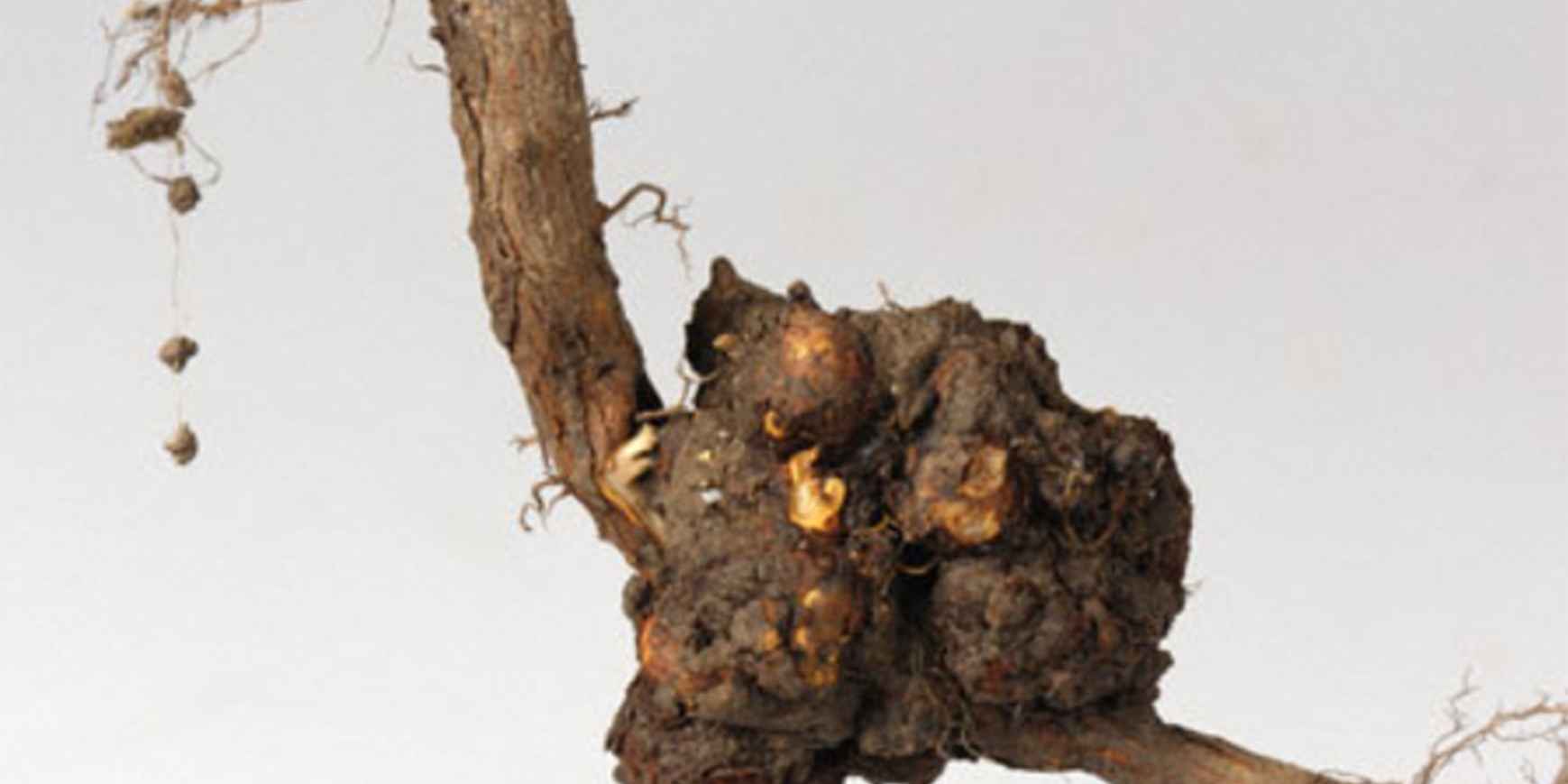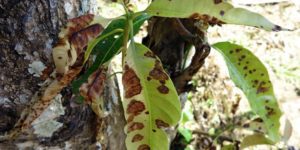Agrobacteria tumefaciens is a rod shaped motile bacteria that lives in the soil. It has flagella that allows the bacteria to swim through moisture films in soils and plants. It causes ugly cankers called CROWN GALLS which causes reduced production and eventually death of the plant. The Bacteria transfers’ part of its DNA to the plant and the DNA integrates into plants genome, genetically transforming target cell, causing tumors and associated changes in plants metabolism.
Agrobacterium initially starts as small swellings on wounded plants parts. Young tumors are soft, creamy white and rounded. The shape becomes irregular with age and may turn brown or black. Several tumors may occur on the same plant and rot from the surface of the plant completely or partially, possibly developing repeatedly in the same area season after season. Other symptoms may include, stunted growth, Chlorotic leaves and plants may be more susceptible to environmental conditions and secondary infections.
Many farms in Kenya are infected with agrobacterium. Growers are advised to reduce plant wounding as much as possible, source clean plants materials from responsible breeders and propagators. This ensures agrobacterium free plants. It’s also important to check bud-wood before deciding on a variety, use clean media, sterilize farm equipment, avoid movement from infected to clean greenhouses, observe strict hygiene during cultural practices such as pruning, bending, always dis infect. These are some of cultural ways to avoid and mange Agrobacterium. Proper climate control of greenhouse is also very important as hot dry greenhouse may lead to stressed plants which eventually leads to lots of galls.

CANTONA® 230 EC is a broad-spectrum contact and protective fungicide for control of Downy mildew and Agrobacteria on Roses.
We advise Growers to use CANTONA 230EC for control and management of Agrobacteria. CANTONA 230EC, a new copper compound fungicide containing the fungicidal molecule- Copper Abietate, a protective fungicide/bactericide which prevents and manages infections in plants at the rate of 1ml/l foliar spray. Copper Abietate has high sterilizing mechanism; non-resistance development, high preventive and treatment effect on the disease which have developed resistance to other fungicide/bactericide.
We encourage you to continue visiting our page for more farming tips.
Greenlife; Your Growth, Our Growth.






